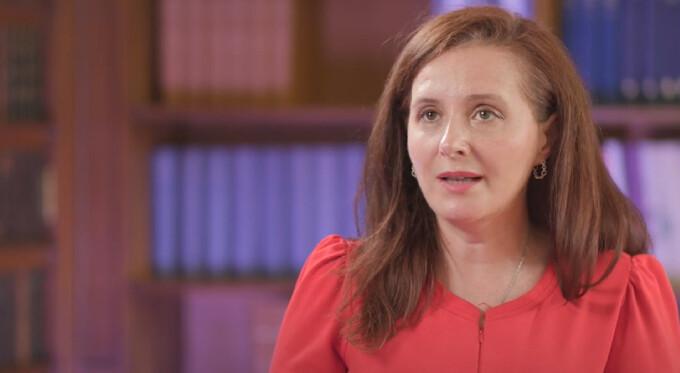
Maria Luciana Axente is one of the UK’s most influential Artificial Intelligence speakers, renowned for championing ethical innovation at the highest levels of business and government. A trailblazer among Women in Tech speakers, she has led global conversations on Responsible AI, digital trust, and the human implications of emerging technologies.
As PwC UK’s Responsible AI and AI for Good Lead, Maria works closely with policymakers, regulators and business leaders to ensure that technology is developed with purpose, integrity and accountability.
In this exclusive interview with The Motivational Speakers Agency, the visionary Technology and Future of Work speaker explores how ethical AI is shaping tomorrow’s workforce, why corporate values must guide innovation, and how business leaders can bridge the gap between technical ambition and societal trust.
Q: Your path into ethical AI didn’t begin in tech. How did your background in digital transformation lead to your current mission of embedding ethics into AI systems?
Maria Luciana: The reality is I didn’t enter through tech. I came through transformation and digital and business transformation, and I was working with companies trying to reinvent themselves using technology, including AI — because when I started, AI was not even on the radar. And I kept seeing the same issue: tools were advancing, but leadership and the ability of leadership to react wasn’t.
What drew me to ethical AI in the end — was this gap between what technology and AI could do and what it should do. And I realised unless we embed responsibility at the core, we’re just accelerating the risk. That became my mission — to make ethics not just a governance layer but a truly strategic asset.
Q: What tangible risks do organisations face when they fail to integrate ethical principles into their AI systems?
Maria Luciana: Reputational damage is the obvious one — think biased hiring tools or privacy scandals. We’ve seen plenty of those. But the bigger risk is the erosion of trust, and when people stop trusting your system, they actually stop trusting your brand. That’s when things go wrong very fast.
What I show companies, both on stage and through my advisory work with Responsible Intelligence, is that ethics isn’t a constraint — it’s a multiplier for trust, loyalty and long-term growth. So this is where the company needs to see the workaround Responsible AI as sustainable growth over a long period of time and cementing and stabilising that relationship with the customer and client base.
Q: In your experience, what’s the most damaging misconception business leaders hold about the role of AI in their organisations?
Maria Luciana: Oh, that AI is purely technical — that it’s something for data science or the IT or CIO/CTO team. You have no idea how many times I had to deal with this myself. In fact, it was us — as a community, as the AI community — that we were able to establish a more inclusive definition of AI. AI is not just a pure technology asset but a complex socio-technical system.
And on top of it, AI is not neutral. Every model included choices — choices that someone else has made when these models have been trained. So, if leaders aren’t asking the right questions, then they’re not leading. They’re just reacting, and they are being — signing up unconsciously to those choices being made.
So, in my work with executives, I always say it’s not just about this perfectly amazing algorithm that amazes us. It’s about your values, your strategy, your accountability. What do you try to achieve using this amazing tool? And if you get that right — that’s where the competitive edge is.
Q: When you speak to live audiences, what core message or mindset do you aim to leave them with?
Maria Luciana: That we have agency and we have control. And I think this is what’s not as clear when you open the newspaper, and you read the latest interview of a tech guru. AI isn’t something “out there” — it’s in the systems we use, the decisions we make, the culture we shape.
And I would very much want the people to walk away not just informed but activated and empowered. Why not? We still have control on our side of how to use AI to work for us. And if a company wants to go further, beyond the talk — that’s where Responsible Intelligence comes in. This is not just a keynote; it’s a movement — on how to make AI work for us as individuals and as a collective.




